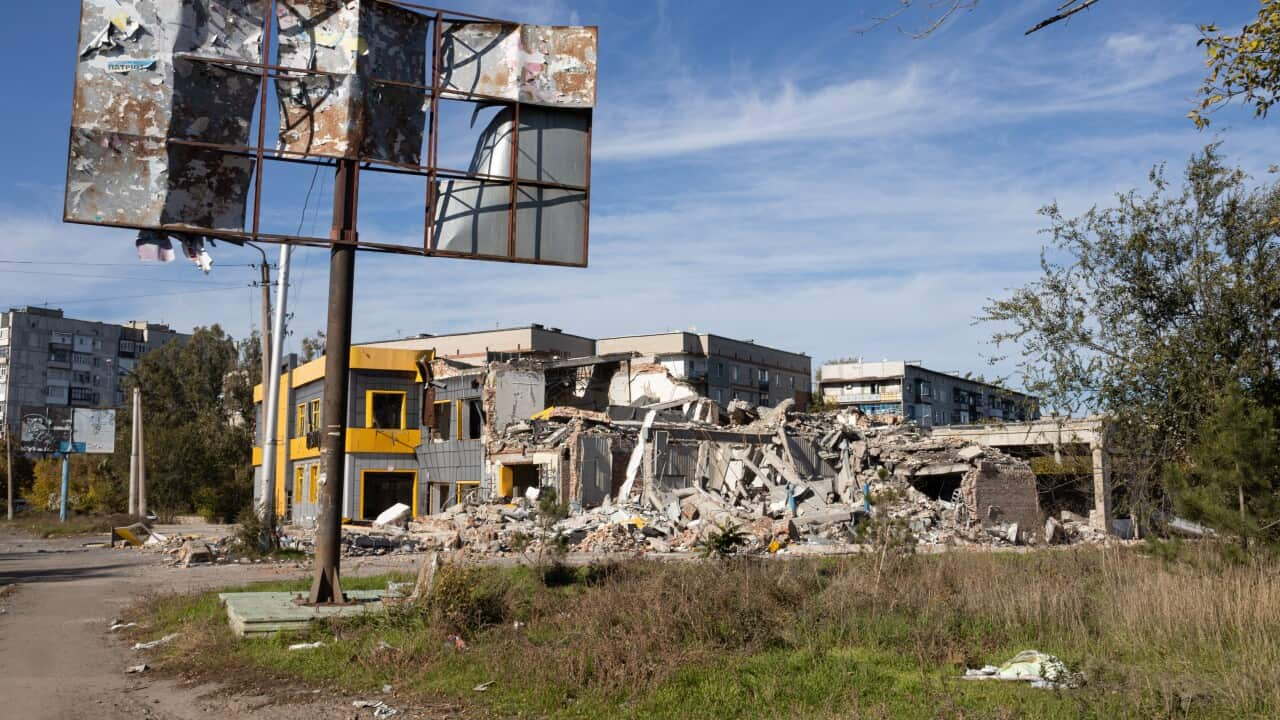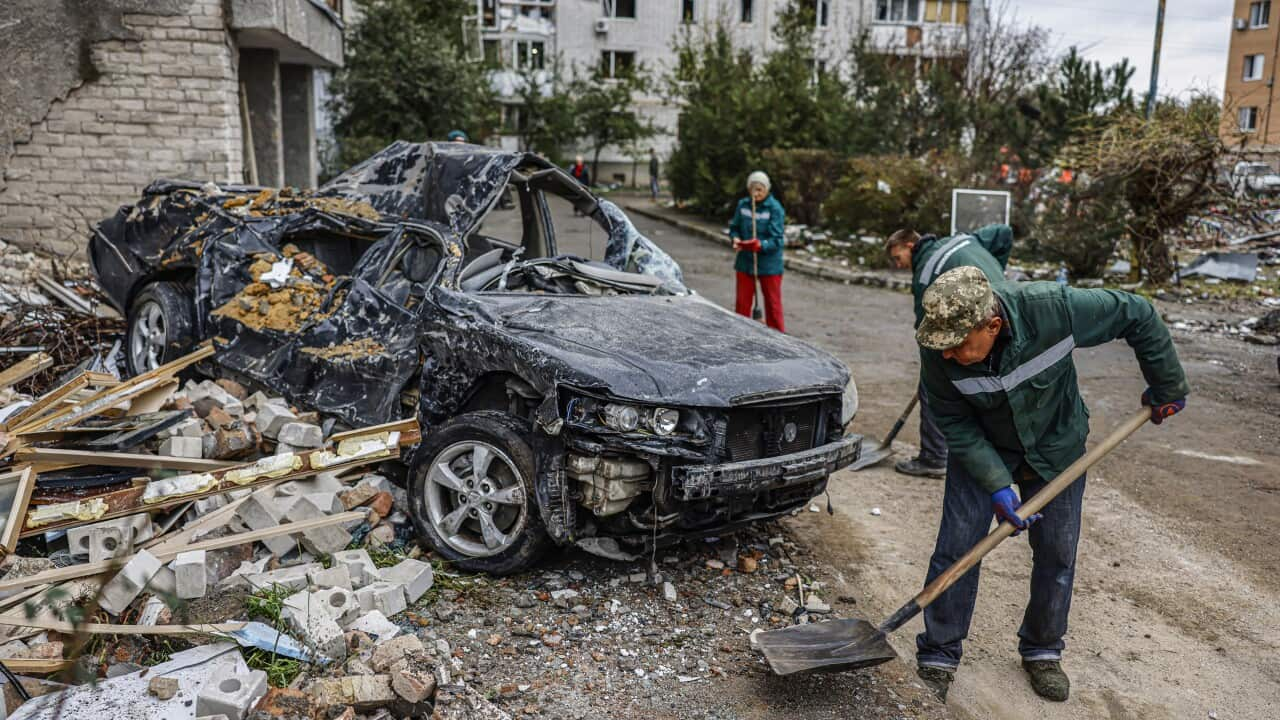The United States has warned there would be severe consequences if Russia used a nuclear weapon in Ukraine, as Western countries accused Moscow of plotting to escalate the war on the pretext that Ukraine was planning to deploy a so-called "dirty bomb" laced with nuclear material.
With Ukrainian forces advancing into Russian-occupied Kherson province, top Russian officials phoned Western counterparts on Sunday and Monday to tell them of Moscow's suspicions. Russia plans to at the United Nations Security Council on Tuesday, diplomats said.
The foreign ministers of France, Britain and the United States rejected the allegations and reaffirmed their support for Ukraine.
"Our countries made clear that we all reject Russia’s transparently false allegations that Ukraine is preparing to use a dirty bomb on its own territory," they said in a joint statement. "The world would see through any attempt to use this allegation as a pretext for escalation."

Ukrainian soldiers fire at Russian positions from a US-supplied M777 howitzer in Ukraine's eastern Donetsk region on Sunday. Source: AAP, AP / Libkos
"We've been very clear with the Russians ... about the severe consequences that would result from nuclear use," State Department spokesman Ned Price said on Monday (local time).
"There would be consequences for Russia whether it uses a dirty bomb or a nuclear bomb."
Russian military Chief of General Staff Valery Gerasimov spoke to the chairman of the US Joint Chiefs of Staff, Mark Milley, on Monday, Russia's RIA news agency reported. The call was the first between the top generals since May, a US military official said, and came eight months to the day since Russia invaded Ukraine.
US officials said there was no indication Moscow had made the decision to use nuclear weapons.
"We continue to see nothing in the way of preparations by the Russian side for the use of nuclear weapons," White House national security spokesman John Kirby told reporters. "And nothing with respect to the potential use for a dirty bomb at this point."

US State Department spokesperson Ned Price said Washington had warned Russia of "severe consequences" if it used nuclear weapons. Source: AAP, AP / Mandel Ngan
In a statement on Monday, Russian Lieutenant General Igor Kirillov said: "According to the information we have, two organisations in Ukraine have specific instructions to create a so-called 'dirty bomb'. This work is in its final stage."
Russia's Foreign Minister Sergei Lavrov insisted the threat was real and that Russia had a "keen interest in preventing such a terrible provocation."
But Ukrainian President Volodymyr Zelenskyy had said the Russian accusation was a sign Moscow was planning such an attack itself and would blame Ukraine.
"If Russia calls and says that Ukraine is allegedly preparing something, it means one thing: Russia has already prepared all this," Mr Zelenskyy said in an overnight address.
The UN's nuclear watchdog said on Monday it was preparing to in the coming days to two Ukrainian sites at Kyiv's request, in an apparent reaction to the Russian "dirty bomb" claims.
What is a dirty bomb?
At its most basic, a "dirty bomb" is a conventional bomb laced with radioactive, biological or chemical materials which get disseminated in an explosion.
Using radioactive materials would make it a type of radiological dispersal device, a term often used interchangeably with "dirty bomb".
Nobody has ever exploded a "dirty bomb", but there is suspicion that extremists may have tried to build one.
A "dirty bomb" is much less destructive than a nuclear device such as an atomic bomb or hydrogen bomb, whose fission or fusion reactions create vast destruction in a wide perimeter.
Producing them requires uranium enrichment capabilities beyond the reach of most countries.
A "dirty bomb" is both easier to make, and less destructive, than a nuclear bomb.
Its effect would contaminate a specific area, and the people there, either by direct radiation or inhalation or ingestion of contaminated substances.
Its main purpose could well be to create panic in a population rather than outright mass killing.










